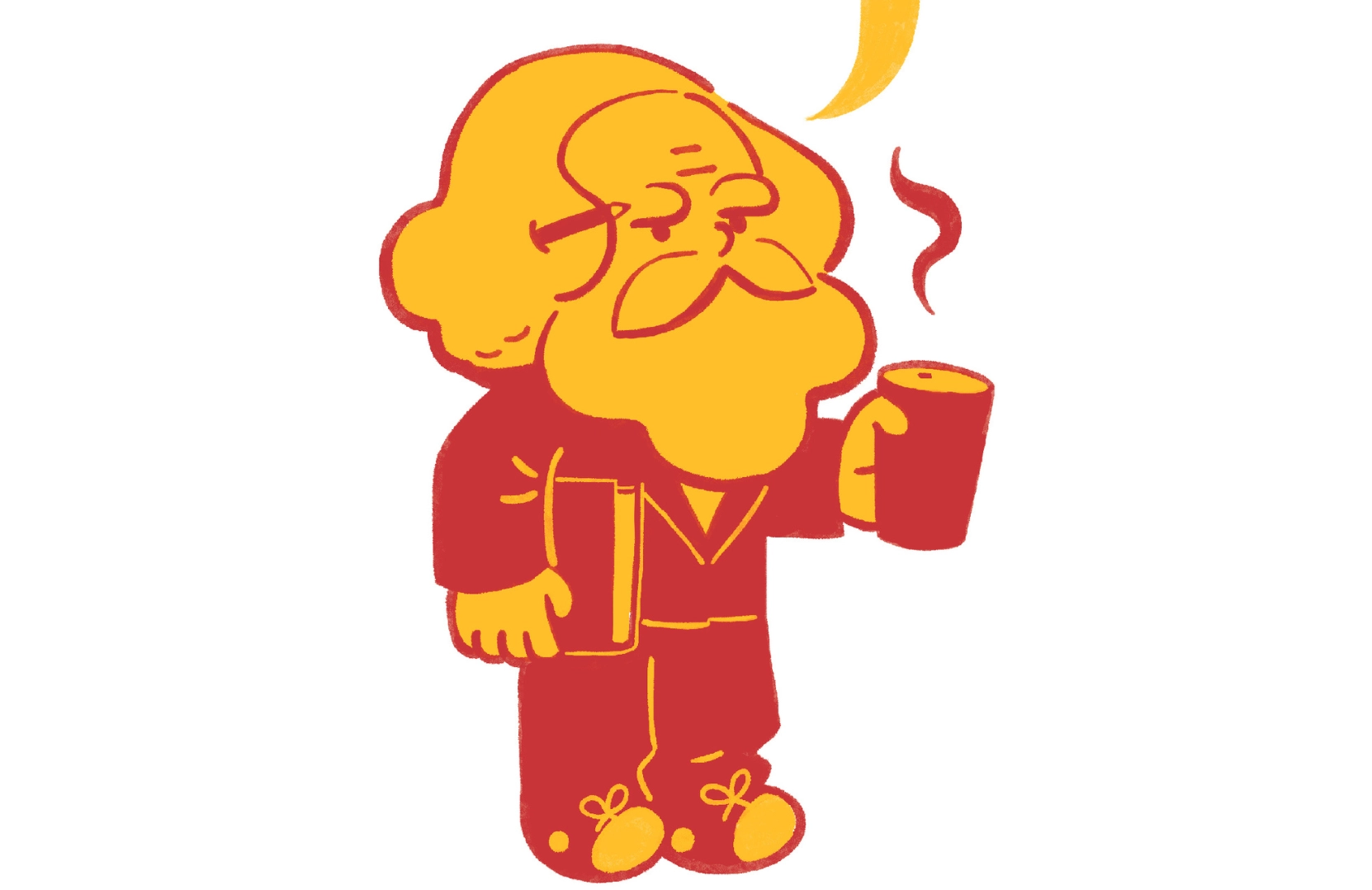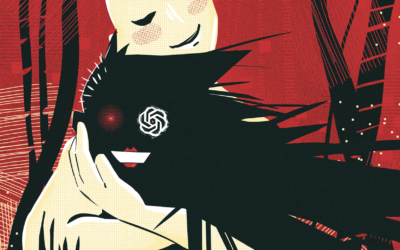Is socialist ideology on the rise at universities?
It’s June and, despite the loud fans pushing air around the Ukrainian Centre’s basement gymnasium, it’s hot. But, at least there’s snacks. There’s a flat of pop, veggie trays, fruit platters, and, most importantly, free pizza for the 14 people spending their Friday night with Edmonton’s chapter of the Young Communist’s League (YCL). Most of the attendees consider themselves Marxists of some sort, one considers himself a Maoist, and one is even a supporter of Kim Il Sung’s North Korean communism.
From this humble position, it’s hard to imagine a large Marxist movement sweeping across the nation, but there are many reports in Canada and internationally that show young people are becoming more interested in socialism.
“If I go onto Twitter, I think yes, absolutely. Everything is so different from 10 years ago. It’s hard to even kind of understand the change. When I go into the classroom. I don’t have that experience.”
Gaelan Murphy, MacEwan Political Science Professor
The Fraser Institute, a right-wing political think tank, released a poll stating that 50 per cent of Canadians in the 18 to24 age group were in favour of socialism. Another poll from the American consulting company Gallup found that 45 per cent of young Americans saw capitalism favourably — lower than the same poll’s results, which was 68 per cent in 2010. In England, the Institute of Economic Affairs polled that nearly 80 per cent of British youth blame capitalism for the housing crisis.
This Marxist critique of capitalism has even reentered the cultural zeitgeist — like popular leftist YouTube channels like the Gravel Institute or ContraPoints, Tik Tok accounts like Midwestern Marx, and Greta Gerwig’s Barbie (ironically paid for by Mattel).
Whether it’s called Marxism, socialism, radical leftism or even communism, the ideas of these ideologies that shook the world in the 19th century are currently part of mainstream political conversations among young people. But, why does it appear to be on the upswing again?
Jeremy Abbott, the leader of this summer school session that I’m attending, takes a sip of Coca-Cola and introduces the opening lecture with his explanation of the “why.”.
“Where are the student organizations or the student unions? Well, they’re nowhere, right? So, we’re kind of demanding the same thing [as unions]. We need to organize student strikes.”
Marcus Katryniuk, member of Socialist Fightback
Abbott says that working class people have always been in a position of exploitation, but recent events have further hurt the proletariat’s quality of life. He says that the many specific current day crises like inflation, the cost-of-living, climate change and geopolitical instability are reasons for people to be socialists. But, most of the attendees of the summer school also have their personal reasons.
For Abbott, it was 9/11 that caused his political shift — he disagreed with America’s global imperialism. For another woman at the YCL meeting, it was the Iraq war for similar reasons. For two of the younger attendees, it was their distrust of government institutions and corporate greed during the pandemic that got them thinking. Jacob Holloway, a University of Alberta Law student wearing a guillotine necklace, says he just had “shitty bosses and landlords.”
Universities are traditionally homes for political dialogue for young people, and academia is often a place where critical Marxist theory can be a useful tool for many subjects within the humanities. But, if socialism is on the rise, what does that mean for campuses?
Months later, I headed to the Dirtbag Café just across from MacEwan to meet with another communist from a different group called Socialist Fightback which has been actively recruiting students into their University of Alberta club since 2017. Marcus Katryniuk has been involved with the group for five years and has considered himself a communist for seven years. When we met, it had only been a few days since he got back from Italy where he attended a congress for Fightback’s global body, the International Marxist’s Tendency.
Both the YCL and Fightback now have clubs at the U of A, but Fightback has been active on MacEwan’s campus with recruitment tables. Over the past couple of years, Katryniuk has seen significant growth.
“Ever since COVID, actually, it’s been every year. There’s been more and more interest,” he says. Since they began in 2017, Fightback has accrued around 50 active members in Edmonton.
With tuition on the rise and a cost-of-living crisis hitting students hard, Fightback sees an opportunity for them to encourage students to protest and strike and also spread the organization’s influence. Similar to unions and labour strikes, Katryniuk says students should take a more aggressive approach to negotiations.
“Where are the student organizations or the student unions? Well, they’re nowhere, right? So, we’re kind of demanding the same thing [as unions]. We need to organize student strikes.”
The last major student strike which led to political action was also the longest student strike in Canadian history. The 2012 Québec student strikes poised post-secondary students against the province’s tuition increase and the adoption of the oppressive Bill-78, a bill that prohibited protesting and picketing on university grounds. It ended with the bill being repealed, and a tuition freeze being implemented.
“Ever since COVID, actually, it’s been every year. There’s been more and more interest.”
Marcus Katryniuk, member of Fightback
Ari, who requested not to have their last name published, has been at MacEwan for roughly four years. They are in the Hearing Aid Practitioner Program, but previously studied for a Bachelor of Arts degree. They are a communist and one of the active members of Fightback.
MacEwan has been a good school for Ari. They enjoyed their courses and had excellent classes. They also enjoy the campus layout. It was during sociology classes where they first began to learn about Marxism in more depth.
“I took one sociology course on globalization, and it kind of laid a lot of the issues with global finance. Like the IMF [International Monetary Fund] and how predatory loans can be forced on developing countries.”
From there, Ari befriended someone who had been an active member with Fightback for some time and was soon attending events at the U of A regularly during winter and fall semesters.
“It just kind of snowballed from there.”
While Ari is one of the handful of active members of Fightback who is a MacEwan student, they admit that the organization is striving for a greater presence on the downtown campus. Which means MacEwan might be seeing more active organization from Marxists groups. But students may not be as open to Marxist organizing as the communists and think-tank polling suggest. MacEwan’s Professor Gaelan Murphy isn’t convinced that Marxism has much of a mouth to bite with when it comes to universities.
“One thing university should strive for is free and open discourse,”
Ari, who requested their last name not be published. MacEwan University Student and member of Socialist Fightback
He has been teaching political science at MacEwan University for over 15 years and is an expert on political philosophy, specifically from the 19th and 20th centuries (hello communism). He doesn’t think there has been a rise in Marxism in his classes. While he admits that more people have a passive understanding of the ideology and more of it is on the top level of culture, he also suggests there are some other factors at play.
“Right-wing populists and left-wing populists have an awful lot in common,” says Murphy. “They think they disagree, but they don’t really disagree.”
That is to suggest that the far-left neo-Marxists and the far-right neo-fascists might be resorting to radical ideologies for similar reasons.
According to Murphy, there are a lot more people questioning the role of the state than there has ever been before in Canada. In the wake of the postmodern world, people are less confident in the institutions that bind them; everything from federalism, to the constitution, to parliament, and even school boards. Whether that lack of confidence is earned or not is another thing; but overall, people are more polarized, angry, and distrustful on both sides of the political compass.
“I don’t see this as primarily from kind of left, communist, Marxist thinking. I see it for both the left and the right,” says Murphy.
Social media during the pandemic didn’t help either. People were cooped up in their homes, doomscrolling their various feeds, and getting trapped in algorithms that create idea bubbles.
Murphy says when he’s on Twitter “Everything is so different from 10 years ago. It’s hard to even kind of understand the change. When I go into the classroom, I don’t have that experience; it seems at least similar to the way it was ten years ago. The only difference is all of us now have a shared outside cultural war, which is like that. But the class itself? Student attitudes? I don’t think so.”
The “cartoonish sloganning” seen on TV and Twitter doesn’t happen in Murphy’s classes because he doesn’t structure them in a way that allows it. For Murphy, it’s the professor’s job to stop concrete ideologies in their tracks and try to give students more nuanced thinking and cultivate discussion.
“[Marxists] don’t study political science, to be honest. Or, if they did think that way their education cures them of that kind of naïve ideological view, and they become a lot more sophisticated.”
But even Ari, an open communist agrees with Dr. Murphy’s position; the university is a place for conversation.
“One thing university should strive for is free and open discourse,” they say, “Open and free debate in campus with laissez-faire people or libertarians and groups like that. I think that’s something we would honestly encourage.”
Design by Shelby Mandin





0 Comments